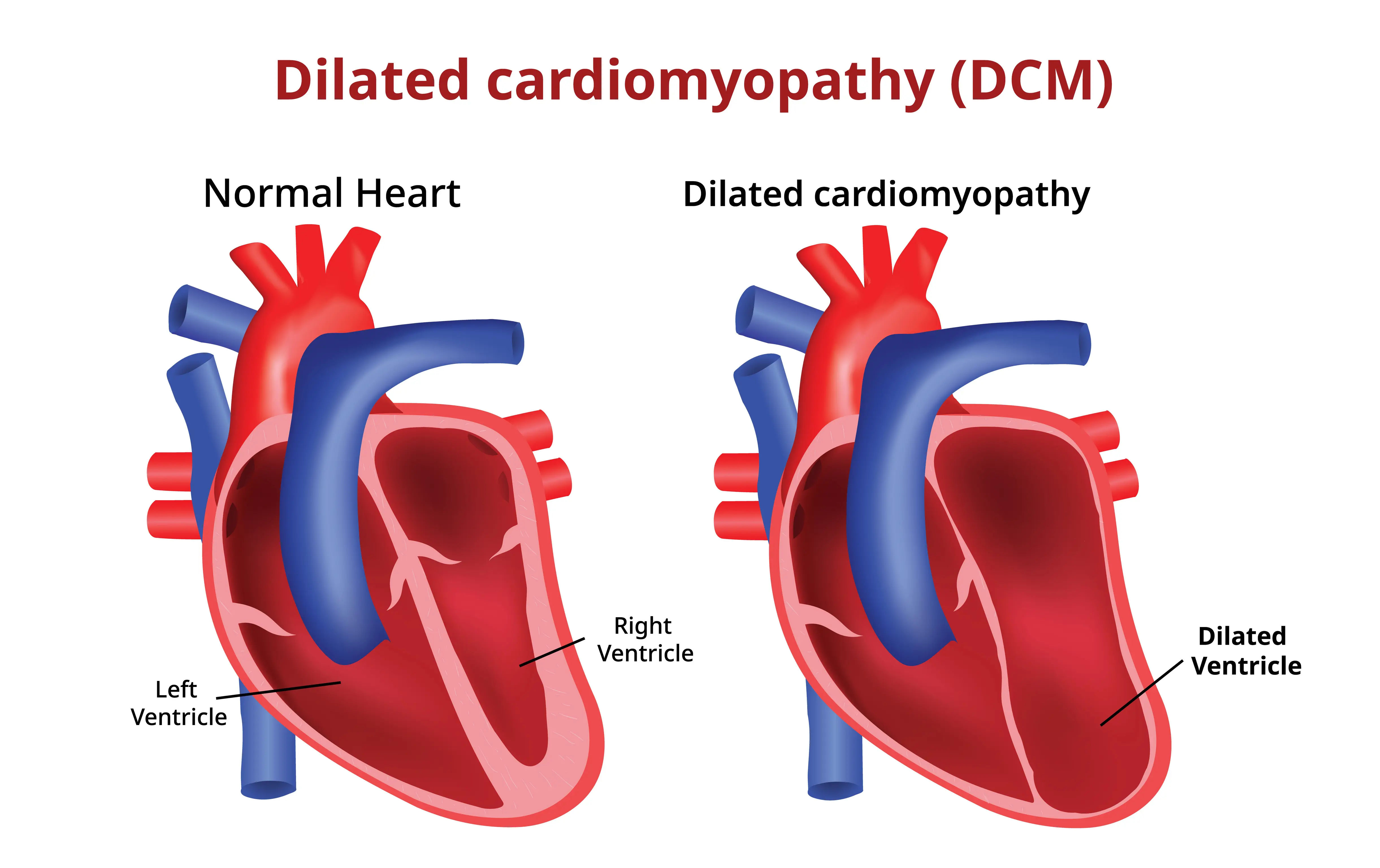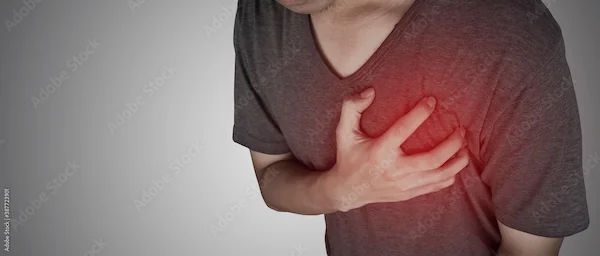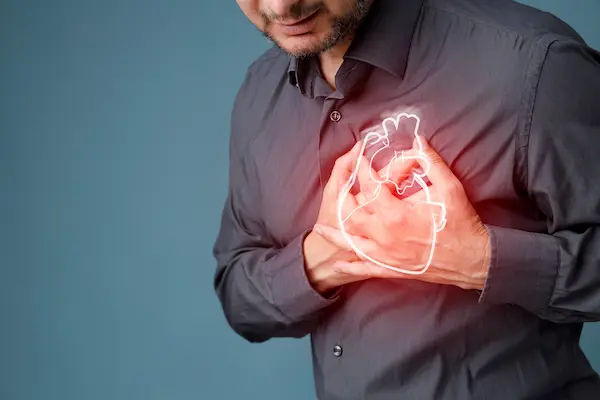- Female
- 31 Years
- 20/02/2025
I recently had a 2D echo and ECG done on the 5th of Jan and they came out normal. Now I'm having neck and shoulder pain and I'm worried. Could this be a sign of a stroke? I'm a patient who had an ASD device closure.
Answered by 1 Apollo Doctors
Neck and shoulder pain can have various causes and may not necessarily be a sign of a stroke. However, given your medical history as an ASD device closure patient, it is important to monitor any new symptoms closely. To address your neck and shoulder pain, you can take over-the-counter pain relievers such as acetaminophen (e.g. Tylenol) at a dose of 500mg to 1000mg every 4 to 6 hours as needed for pain. Additionally, you can apply a warm compress to the affected area and practice gentle neck and shoulder stretches. If the pain persists or worsens, it is advisable to follow up with your cardiologist or healthcare provider for further evaluation and management.
Dr. Chandra Suggests...
Consult a Cardiologist
Answered 04/07/2025
0
0

Ask Apollo
AI powered Health Chatbot
-
Heart Health and Pain Connection
Your recent neck and shoulder pain is unlikely to be directly related to your previous ASD device closure, especially since your recent 2D echocardiogram and ECG were normal. These tests suggest your heart is functioning well at this time. -
Common Causes of Neck and Shoulder Pain
- Muscle strain
- Poor posture
- Nerve irritation
-
Stroke Considerations
- Neck and shoulder pain alone is not a common sign of stroke.
- Be aware of other symptoms: sudden weakness, numbness, difficulty speaking, vision changes, or severe headache.
- Stroke is less common in young adults but can occur.
-
Action Steps
- If pain persists or worsens, consult your healthcare provider.
- Seek immediate medical attention if stroke symptoms appear.
Summary
- Your heart tests are normal, making a direct link to your ASD closure unlikely.
- Neck and shoulder pain is usually due to musculoskeletal causes.
- Stroke symptoms involve more than just pain and require urgent attention if they appear.
- Follow up with your doctor if symptoms continue or new symptoms develop.
Answered 10/09/2025
0
0

More Cardiology Health Queries
View allI'm experiencing a heaviness in the middle of my chest and sometimes there's a mild pain that moves from the left side to the center. There aren't any other symptoms, but it's got me a bit worried. Do you think this is something serious or just something minor? What should I do about this?
Tab pantop 40mg for 3 days
Answered by 1 Apollo Doctors
I've just gotten back from a routine medical checkup, and my report mentions something called Partial RBBB. The clinic said it's nothing to worry about, but I'm still feeling a bit uneasy. Should I be doing any further tests or follow-ups for this? Would love to know what you think.
its reversible no need to worry,visit Cardiologist for appropriate managemnet and have a regular follow up
Answered by 1 Apollo Doctors
I've been dealing with some concerns about my blood pressure. I'm a 17-year-old guy, in pretty good shape with a BMI of 24.7, and I've noticed my blood pressure readings are often around 14060 or 13060. When I'm calm, the systolic number goes down to about 125, but the diastolic stays below 70, which I find unsettling. I do experience a bounding pulse in different areas of my body which adds to the stress. I've had health anxiety since the lockdown began, and I've been using homeopathy which has helped, and I'm also trying to keep my diet in check and exercise regularly. What's bugging me is why my diastolic number doesn't return to a typical range even when I'm managing everything else pretty well? When people talk about high blood pressure, I usually hear both systolic and diastolic numbers rise together, but mine seems to have one high and the other low. Could this be more than just anxiety, or is there something unique about my situation?
1. Your diastolic blood pressure not returning to normal despite your efforts could be due to a combination of factors, including anxiety and possibly other underlying health conditions. It's great that you are managing your anxiety with homeopathy, but it's essential to monitor your blood pressure regularly and consult with a healthcare professional for further evaluation and management. In terms of medication, you can consider starting with a low dose of a calcium channel blocker like Amlodipine 2.5mg to help lower your diastolic blood pressure. 2. The fluctuation in your blood pressure readings, with systolic going up and diastolic going down, can be attributed to various factors such as stress, anxiety, and even the time of day when you measure your blood pressure. It's not uncommon for individuals to experience variations in their blood pressure readings, especially in response to different stimuli. However, persistent high diastolic blood pressure warrants attention and monitoring. 3. While anxiety may be a significant contributing factor to your elevated blood pressure readings, it's essential to rule out any other underlying medical conditions that could be impacting your diastolic blood pressure. Considering your age and overall fitness level, it's crucial to continue with your healthy lifestyle habits, including regular exercise and a balanced diet. Additionally, incorporating stress-reducing activities such as mindfulness or yoga may further help in managing your anxiety and potentially improving your blood pressure levels. Regular follow-ups with a healthcare provider will be beneficial in monitoring your blood pressure and adjusting your treatment plan as needed.
Answered by 1 Apollo Doctors
Disclaimer: Answers on Apollo 247 are not intended to replace your doctor advice. Always seek help of a professional doctor in case of an medical emergency or ailment.

 How do I know if my neck pain is serious?
How do I know if my neck pain is serious? 


